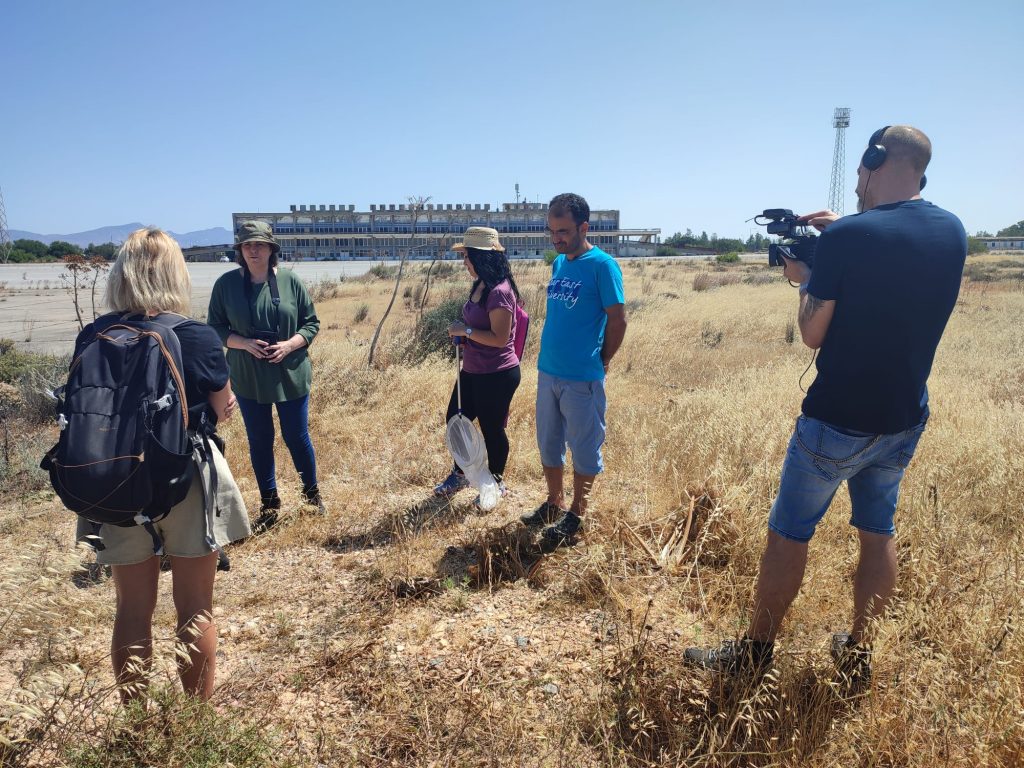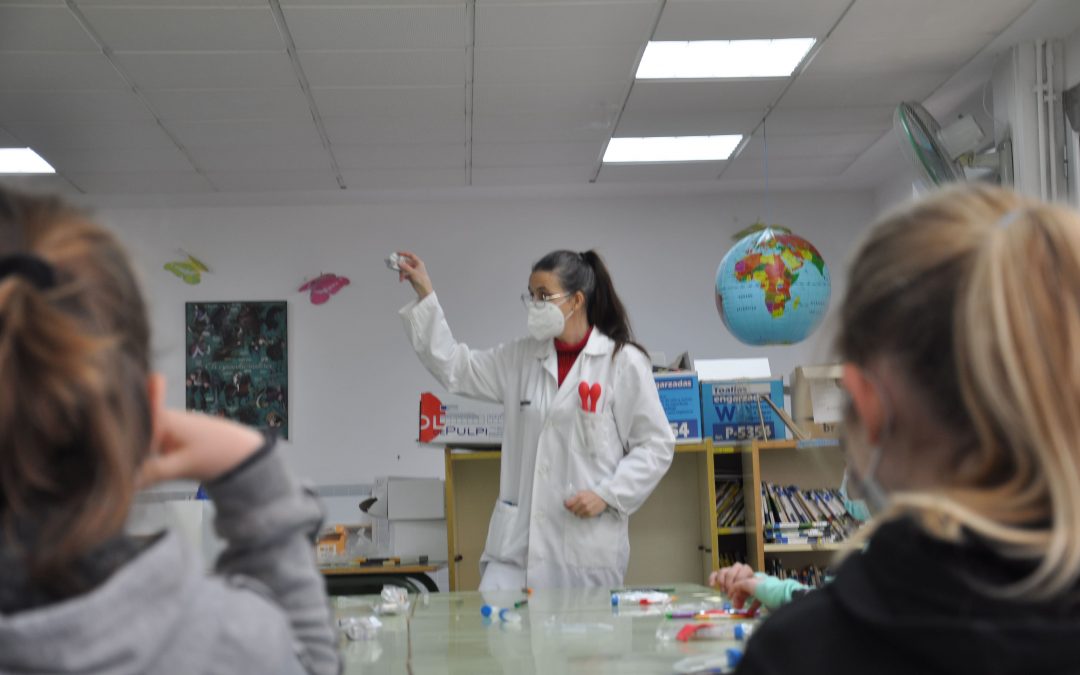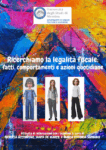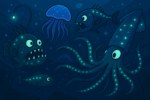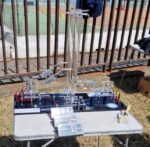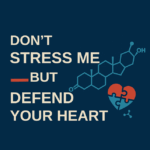This year, the Foundation for the Promotion of Health and Biomedical Research of Valencia Region (FISABIO), an entity that forms part of the MEDNIGHT consortium, offered different scientific outreach activities framed within the MEDNIGHT 2022 project.
Researchers Back to School and Mind the Lab
Within the framework of the “Researchers Back to School” and “Mind the Lab” activity, the researchers and research management staff from the Fisabio Foundation brought the science that they work on in their laboratories to students between the ages of 3 and 12 years in six preschools and primary education centers in the Valencian Community. They did so through direct contact with the student body, to whom they gave an up-close look at what their work consists of and the importance of research for our quality of life. In addition, through practical workshops and games, the students learned about biochemistry, immunology, microbiology and physics while also having fun.
These workshops were held on February 11, April 1, 12, 28 and 29 and May 6, 2022 in education centers in the city of Valencia. In total, 1,704 boys and girls attended these workshops. The activity was held during one day of class in each center. That is, each session went from approximately 9:00 a.m. to 2:00 p.m.
The main objective of this activity is for students to appreciate science as a cultural act that takes place in their daily life and that science is carried out by researcher staff that has a direct connection with that education center, their teachers and students, narrating their scientific experience and career in first person. At the same time, the project goes beyond showing the basic principles and fundamental laws of the experimental sciences, such as physics, chemistry and biology.
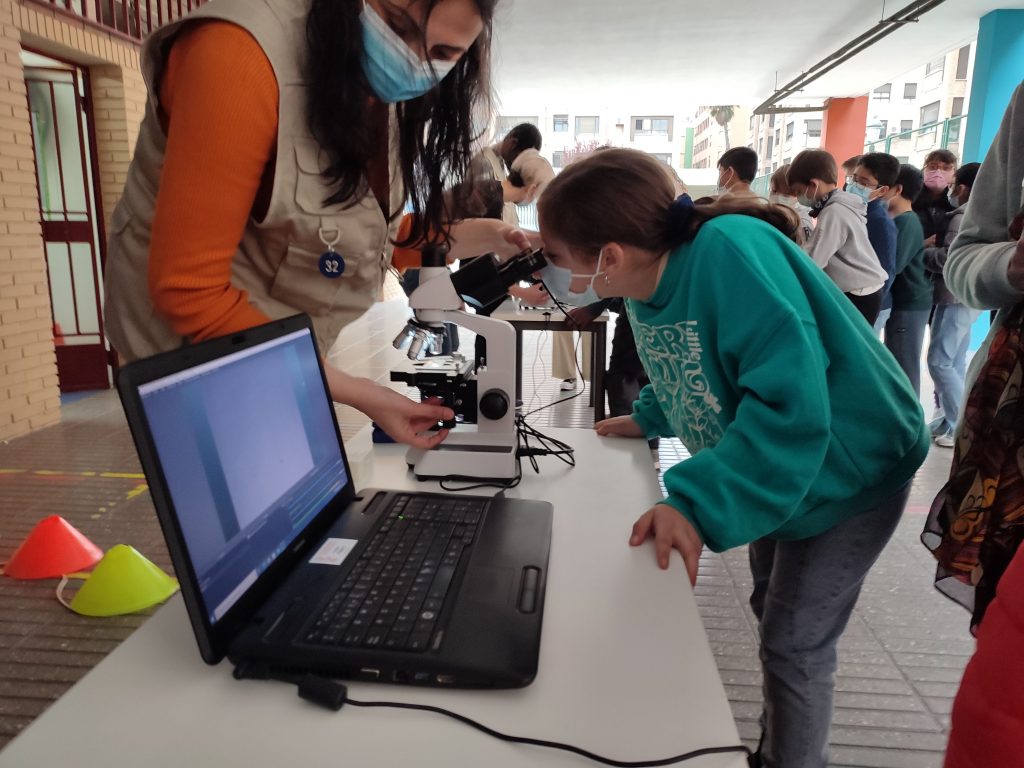
The workshops given were:
- “Inflate a balloon with yeast” Workshop. In this workshop, children learned what a chemical reaction is, and what differentiates it from a physical reaction, through a practical experiment on fermentation, using yeast and sugar. The chemical reaction between these two reactants will generate CO2, a gas that will inflate a balloon, without having to blow!
- “Microscopic Life” Workshop. In this workshop, the students used a microscope to observe live microorganisms from samples collected from ponds in city gardens. The participants also observed other types of samples, such as plant cells from an onion, cells from their own saliva, hair, blood, etc.
- Like the “Game of the Goose,” the players of “Bacteriolopolis” turn into bacteria that advance along a giant board until they reach the Fisabio laboratories. In special boxes, they learn, for example, that Lactobacillus turns milk into yogurt and that some bacteria can be resistant to antibiotics.
- Create your own vaccine. The main objective of this workshop is to recreate what happens in our body when we get infected with a virus, specifically SARS-CoV-2. For that reason, in this activity, a model of the human immune system and the coronavirus infecting it will be created. It will be made with materials such as play dough, popsicle sticks and straws. A vaccine against the virus will also be created.
- The antioxidant power of fruit. It is a workshop that allows discovering what fruits have antioxidant power through an experiment with povidone-iodine, a product frequently used as a disinfectant and anti-septic that contains molecular iodine. With this workshop, the attendees learn that acquiring bad habits leads to metabolism problems due to the accumulation of free radicals and that vitamins are good for the body thanks to their anti-oxidant power.
Science Week
Under the umbrella of the “Researchers Back to School” and “Mind the Lab” activity, “Science Week” will also be held. It will be inaugurated November 7 to 11, 2022, where each day of the week, these same workshops will be held in a different school. This time, however, the Fisabio researchers will return to the schools in rural populations with a maximum of 15,000 residents in the Valencian Community.
“Mediterranean Faces of Science” Exhibit
The Fisabio Foundation and Seneca Foundation presented the “Mediterranean Faces of Science” Exhibit to various education centers in 2022.
This exhibit is framed within the MEDNIGHT project and presents information about female scientists from countries in the Mediterranean basin. It is made up of a collection of brief biographies of female scientists who have experienced very different personal, cultural and professional circumstances, but all of them have a common element connecting them: the Mare Nostrum.
The same women who appear in the exhibit have formed part of the process of creating it. In addition, the exhibit takes a journey through the science in all of these countries: Albania, Algeria, Bosnia, Cyprus, Croatia, Egypt, Slovenia, Spain, France, Greece, Israel, Italy, Jordan, Lebanon, Libya, Malta, Morocco, Montenegro, Serbia, Syria, Tunisia and Turkey.
The exhibit is formed of 28 A2-sized foam board panels, which have been sent in a package to the education center that has requested the “Mediterranean Faces of Science” to be displayed.
The panels were put on display for 15 days in each center, as per the following schedule:
From March 21 to April 8 in the Colegio PIO XII in Valencia
From May 2 to May 20 in the Colegio Esclaves in Alcoi
From May 23 to June 10 in the Colegio Julio Verne School in Torrent
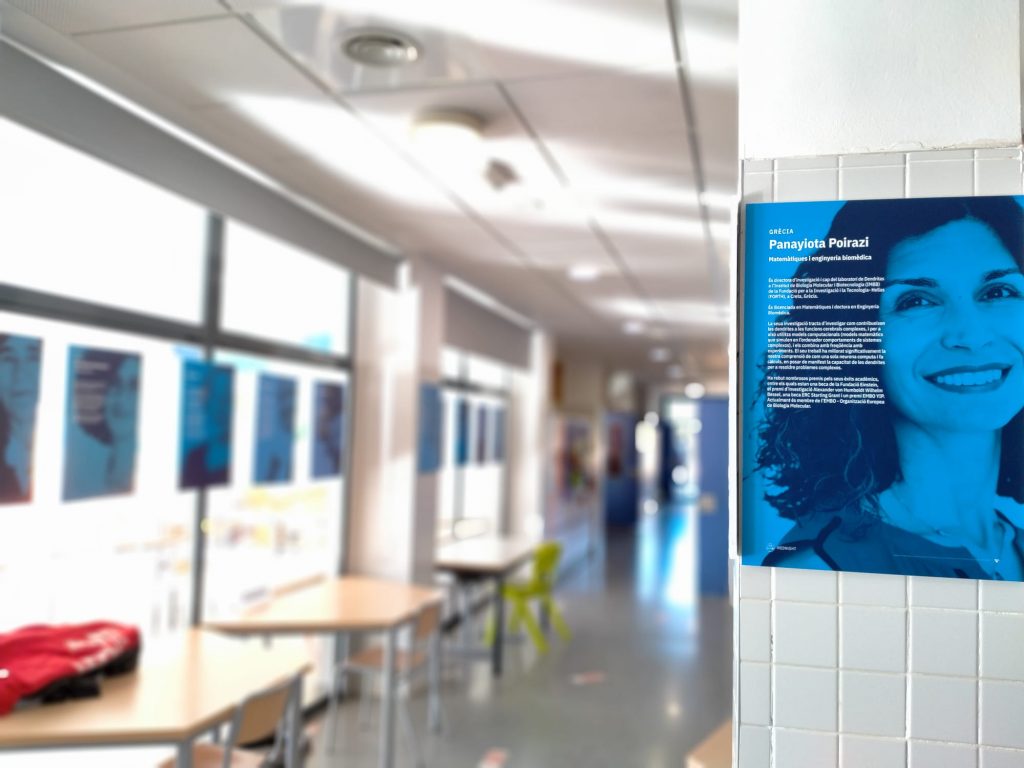
“Mednight Expedition: the Ports of Science” Documentary
In May and June, the Fisabio communication team recorded the second part of the “Mednight Expedition: the Ports of Science” documentary, framed within the MEDNIGHT 2022 project. The recording was filmed in two stretches aboard the sailboat of the MEDNIGHT expedition.
STRETCH 1 – Voyage to the island of Cyprus
The first voyage of the expedition in search of Mediterranean science was held from May 20 to 28 on the island of Cyprus. Experts were interviewed there who explained their research on microplastics, biodiversity and endemic diseases, among other subjects.
The research staff making contributions were: Edna Yamasaki, researcher from the University of Nicosia; Mariam Massoud, student at the University of Nicosia; Salih Gucel, professor and researcher at the Near East University; Iris Charalambidou researcher and professor at the University of Nicosia; Constantinou Deltas, researcher at the Research and Innovation Center of Excellence in Biobanking and Biomedical Research; Kyriaki Kylili, researcher at the University of Nicosia; Constantinos hadjistassou, researcher at the University of Nicosia; and Louis Hadjioannou, researcher at the Cyprus Mariné and Marítime Institute
STRETCH 2 – Voyage to the Greek islands
The second journey took place from June 10 to 19 throughout the Greek islands, departing from Athens until reaching Lesbos. Julia Máñez, researcher at IMEDEA (UIB-CSIC), was interviewed aboard the expedition. During the journey, she took samples and prepared the cores for the MICROFAM project on microplastics. Also interviewed were Ilias N. Smyrnioudis, head researcher at Chios Mastiha Growers Association and Chios Gum mastic Growers Association; Drosos Koutsoubas, professor in the Department of Marine Sciences at the Aegean University; Stelios Icatsanevackis, professor in the Department of Marine Sciences at the Aegean University; and Michail Ragkousis, doctoral student in the Department of Marine Sciences at the Aegean University.
